Intro
Discover 5 ways kidney disease blood tests diagnose & monitor kidney function, detecting issues like kidney failure, nephrotic syndrome & renal impairment through serum creatinine & GFR analysis.
Kidney disease is a serious health condition that affects millions of people worldwide. It occurs when the kidneys are damaged and cannot filter waste and excess fluids from the blood effectively. Early detection and treatment of kidney disease are crucial to prevent progression and reduce the risk of complications. One of the most common methods of detecting kidney disease is through a blood test. In this article, we will discuss the importance of kidney disease blood tests and explore five ways these tests can help diagnose and manage kidney disease.
Kidney disease can be caused by various factors, including diabetes, high blood pressure, family history, and age. If left untreated, kidney disease can lead to serious complications, such as kidney failure, heart disease, and stroke. A kidney disease blood test can help identify individuals who are at risk of developing kidney disease or those who already have the condition. The test measures the levels of waste products, such as creatinine and urea, in the blood, which can indicate how well the kidneys are functioning.
The importance of kidney disease blood tests cannot be overstated. These tests can help healthcare providers diagnose kidney disease early, which can improve treatment outcomes and reduce the risk of complications. Additionally, kidney disease blood tests can help monitor the progression of the disease and assess the effectiveness of treatment. In this article, we will delve into the details of kidney disease blood tests and explore five ways these tests can help diagnose and manage kidney disease.
Understanding Kidney Disease Blood Tests
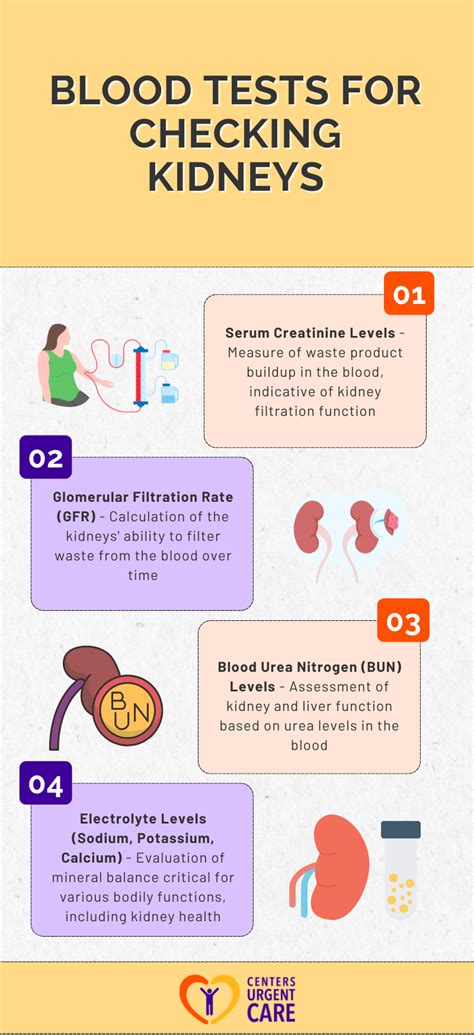
Types of Kidney Disease Blood Tests
There are several types of kidney disease blood tests, each with its own specific purpose. The serum creatinine test measures the level of creatinine in the blood, which can indicate how well the kidneys are filtering waste products. The BUN test measures the level of urea in the blood, which can also indicate kidney function. The eGFR test estimates the glomerular filtration rate, which is the rate at which the kidneys filter waste products from the blood. These tests can be used alone or in combination to diagnose and manage kidney disease.5 Ways Kidney Disease Blood Tests Can Help
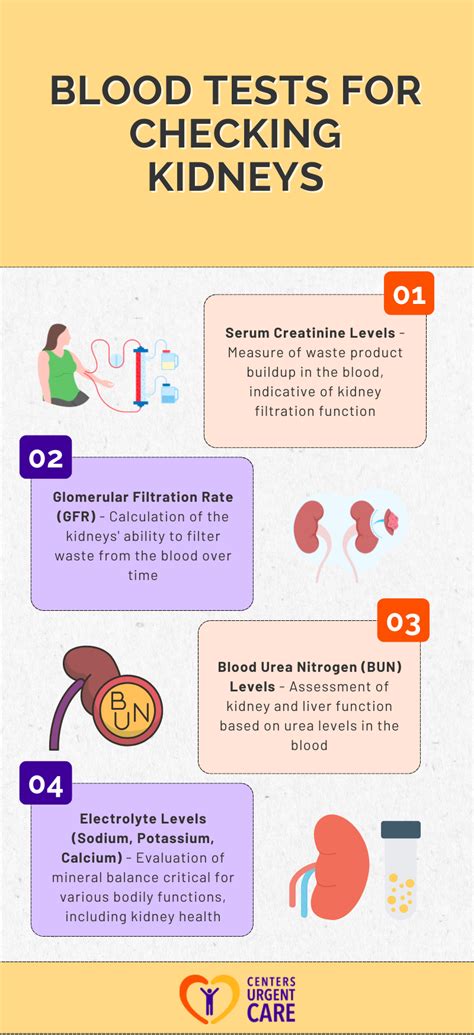
Interpreting Kidney Disease Blood Test Results
Interpreting kidney disease blood test results requires a thorough understanding of the tests and their limitations. The results of kidney disease blood tests are typically compared to reference ranges, which can vary depending on the laboratory and the individual's age, sex, and other factors. Healthcare providers use the results of kidney disease blood tests to diagnose and manage kidney disease, and to monitor the effectiveness of treatment. It is essential to consult with a healthcare provider to interpret the results of kidney disease blood tests and to develop an effective treatment plan.Benefits of Kidney Disease Blood Tests
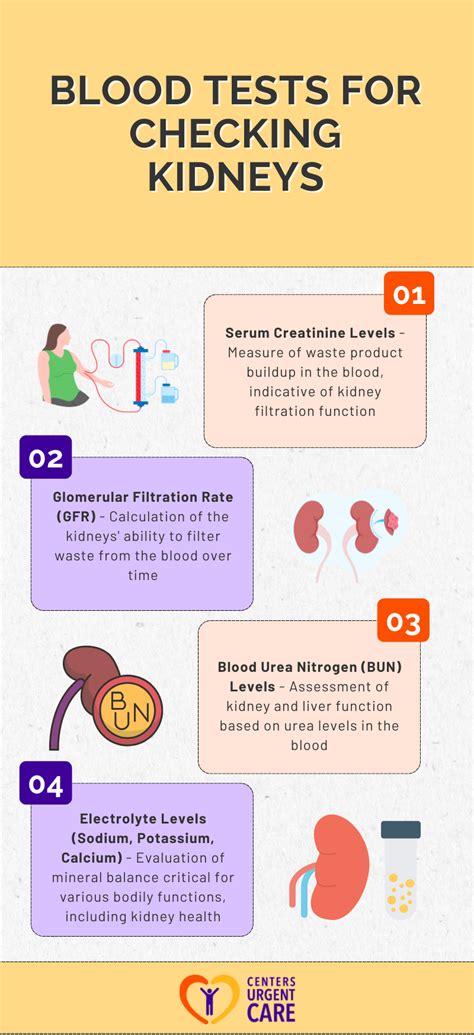
Risks and Limitations of Kidney Disease Blood Tests
While kidney disease blood tests are generally safe and effective, there are some risks and limitations to consider. These tests can be affected by various factors, such as diet, medications, and other medical conditions, which can impact the accuracy of the results. Additionally, kidney disease blood tests may not detect all cases of kidney disease, particularly in the early stages. It is essential to consult with a healthcare provider to discuss the risks and limitations of kidney disease blood tests and to develop an effective treatment plan.Preparation for Kidney Disease Blood Tests
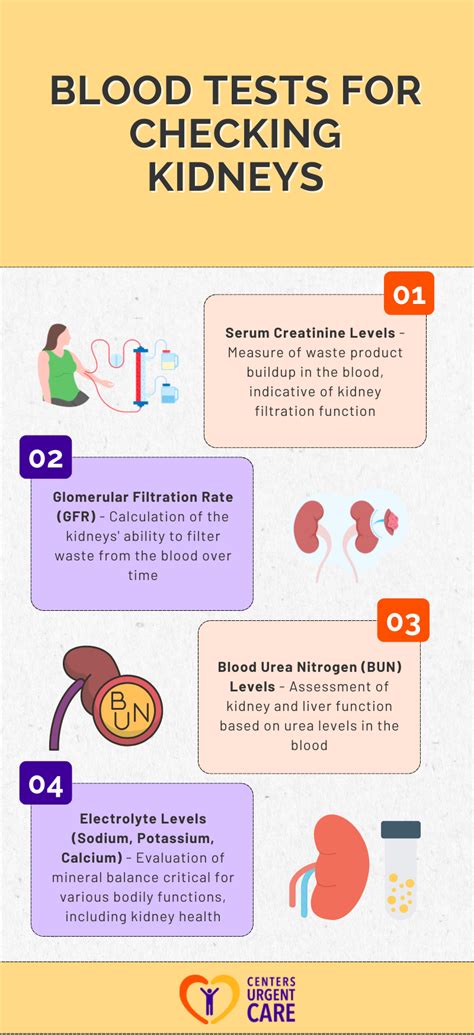
What to Expect During Kidney Disease Blood Tests
During kidney disease blood tests, a healthcare provider will typically draw a blood sample from a vein in the arm. The blood sample will then be sent to a laboratory for analysis. The test is usually quick and painless, and results are typically available within a few days. It is essential to consult with a healthcare provider to discuss what to expect during kidney disease blood tests and to develop an effective treatment plan.Conclusion and Next Steps
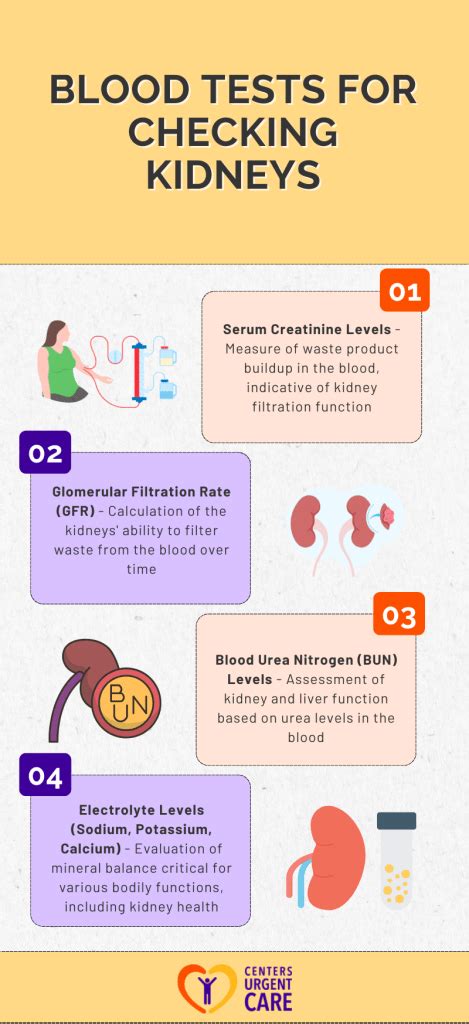
We invite you to share your thoughts and experiences with kidney disease blood tests in the comments section below. Your feedback can help others understand the importance of kidney disease blood tests and how they can improve patient outcomes. Additionally, if you found this article informative, please share it with others who may benefit from this information.
What is kidney disease?
+Kidney disease is a condition in which the kidneys are damaged and cannot filter waste and excess fluids from the blood effectively.
What are the symptoms of kidney disease?
+The symptoms of kidney disease can vary, but may include fatigue, swelling, and changes in urination.
How is kidney disease diagnosed?
+Kidney disease is typically diagnosed through a combination of physical examination, medical history, and laboratory tests, including kidney disease blood tests.
What are the treatment options for kidney disease?
+The treatment options for kidney disease depend on the underlying cause and severity of the condition, but may include lifestyle modifications, medications, and dialysis or kidney transplantation in advanced cases.
Can kidney disease be prevented?
+While some cases of kidney disease cannot be prevented, maintaining a healthy lifestyle, including a balanced diet, regular exercise, and managing underlying medical conditions, can help reduce the risk of developing kidney disease.
